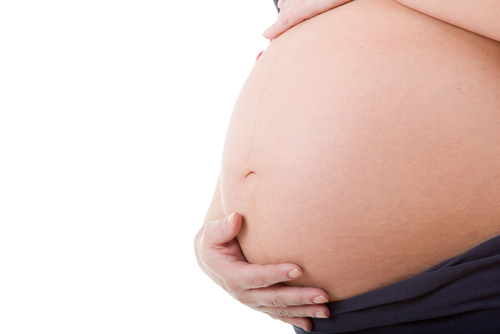Women who undergo surgical treatment for entrometriosis may be at greater risk of certain pregnancy complications, particularly abnormal placenta placement, a recent study suggests. However, this risk may be due to endometriosis stage rather than the surgery itself.
The study, “Adverse effects of endometriosis on pregnancy: a case-control study,” was published in BMC Pregnancy and Childbirth.
Whether endometriosis has a significant effect on the risk of complications during pregnancy — and the extent of such an effect, if it exists — has been a topic of some controversy, with different studies reporting different outcomes. Whether pre-pregnancy treatments, such as endometriosis surgery, affect pregnancy outcomes also is unclear.
In this study, researchers set out to gain further insights into these issues.
To do so, they analyzed medical records of people who gave birth at Nagoya University Hospital, a Japanese center that specializes in high-risk pregnancies, between 2010 and 2017. This included data for 80 people with endometriosis and 2,689 without (control group).
Relative to the control group, the average age of the endometriosis group was higher (34.2 vs. 32.9 years), and a significantly higher proportion of the endometriosis group were giving birth for the first time (83.8% vs. 54.7%) and had conceived using assisted reproductive techniques (ART) such as in vitro fertilization (28.7% vs. 12.8%). Other factors, including the frequency of diabetes or high blood pressure, did not significantly differ between the groups.
The researchers constructed statistical models to compare the relative risk of various pregnancy-related complications in the endometriosis group as compared to the control group. These models took into account factors such as parental age, use of assisted reproductive techniques, and parental body mass index (a ratio of weight to height).
They found that, after adjusting for these factors, the only complication that was more prevalent in the endometriosis group was placenta previa, a condition in which the placement of the placenta in the uterus is abnormally low, such that it covers the cervix. The risk of placenta previa in the endometriosis group was 3.19 times higher than in the control group.
The researchers then divided the endometriosis group based on whether they had received surgical treatment for endometriosis prior to pregnancy (49 women) or not (31 women). They found that those who had not received surgery were not at higher risk of placenta previa. However, those who had undergone surgical treatment were at increased risk (4.62 times higher). The risk was highest (nearly sixfold) among those who had a gap of more than five years between surgical treatment and pregnancy.
“In patients with endometriosis, we found that patients with a history of surgical treatment before pregnancy were associated with an increased risk of placenta previa,” the researchers wrote, whereas, “patients without pre-pregnancy surgical treatment such as patients who only received hormone therapies … were not associated with an increased risk.”
“Thus,” they concluded, “patients with a history of surgery require particular attention for placenta previa during pregnancy.”
It is important to emphasize that these data do not support any kind of cause-and-effect relationship; they show only an association. For instance, although it may seem that surgical treatment itself increases the likelihood of placenta previa, the researchers suspect this isn’t actually the case. Instead, they suggested that people who get surgical treatment might have more severe endometriosis in the first place. “Increased risk of placenta previa in patients with endometriosis with pre-pregnancy surgical treatment might be due to the higher rate of severe stage of endometriosis or a recurrence of endometriosis,” they wrote.
That placenta previa risk was highest among those with a longer gap between surgery and pregnancy supports this speculation, since, in theory, there would be more time for a recurrence to occur. However, at present this is only speculation. The researchers wrote, “Further studies are required to investigate the association between the site and stage of endometriosis or the nature of surgical treatment and placenta previa in a subsequent pregnancy.”

